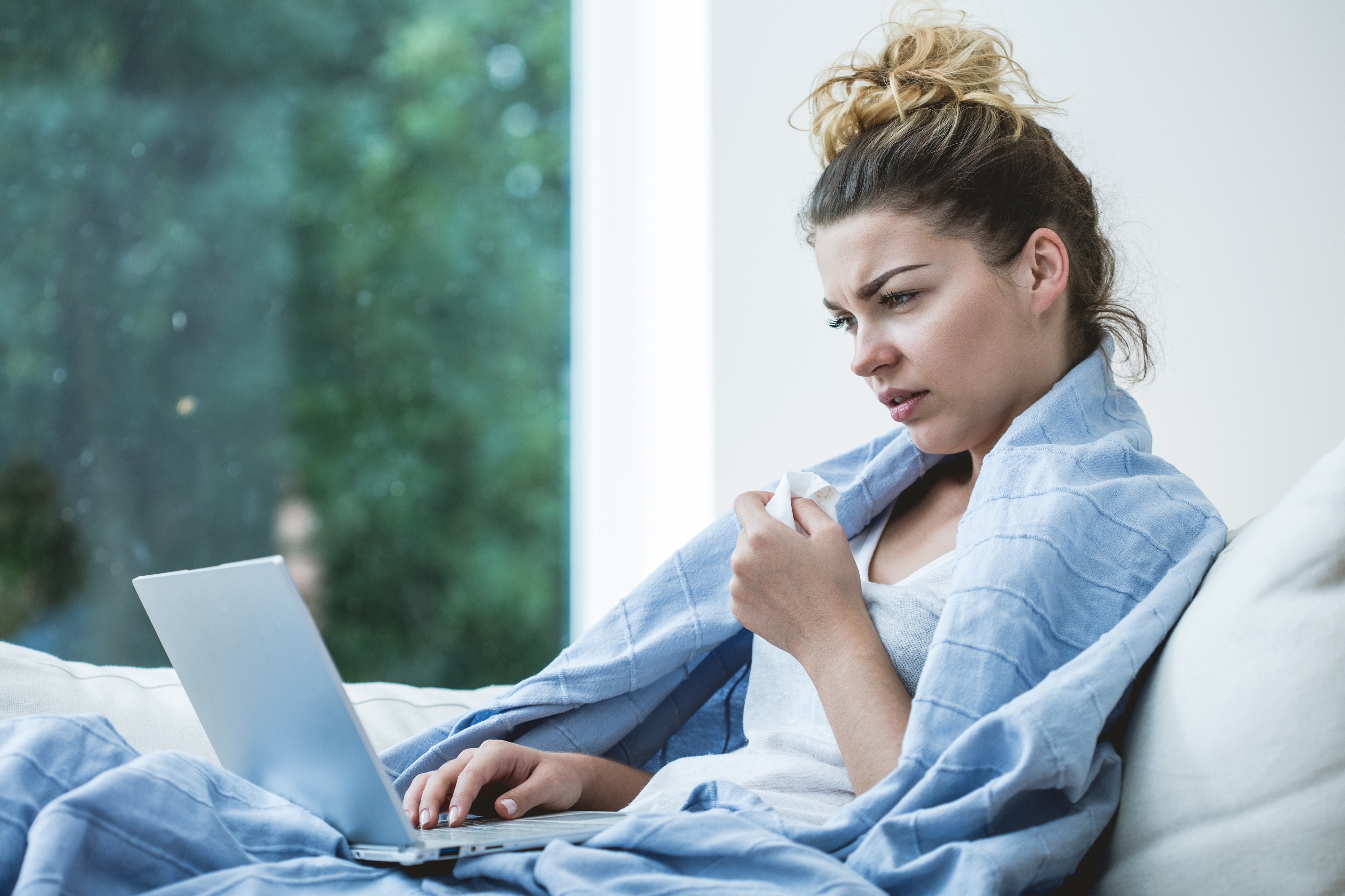-
Rates of anxiety continue to increase, especially amongst young Australians according to new Medibank Better Health Index data, which surveys 1000 Australians every week.
More than one in four - or 28% - of those aged 18-29 reported an anxiety disorder in the year leading up to March 2018.
This represents an uplift from 27% in the year prior, and 11% ten years prior in 2007-08.
Watch the Medibank Health Update
Anxious Australia: mental health conditions continue to increase

-
Young women were more than twice as likely as males to be affected, with 40% suffering from anxiety, compared with just 16% of males.
The data also indicates that those affected by anxiety are more likely to suffer from mental health conditions, such as depression, anxiety and panic attacks, when compared to the general population.Commenting on the increase, adolescent and child psychologist Dr Michael Carr-Gregg explained:
“A little bit of anxiety improves our efficiency and performance. It becomes a problem when these feelings don't go away. There are many symptoms for anxiety that may indicate a problem. One of these can be lack of skills to cope. This may affect your ability to work, study and sleep.”
The symptoms of anxiety conditions are not always obvious as they can often develop slowly over time. Given everyone can experience some form of anxiety during their life, it can be hard to know how much is too much. Beyond Blue’s checklist is a helpful tool to measure your anxiety levels over the past few weeks, and find information and contacts to get some extra support when you need it.
Read more: Am I just worried, or is it anxiety?
What’s behind the increase in anxiety? Theories as to why mental health conditions are on the rise vary. From decreased stigma, to increasing use of technology and loneliness.
Commenting on the increase, Medibank Chief Health Officer Linda Swan said:
“Today’s young adults are among the first to grow up with technology playing the ever-present role it now does – giving way to new and flexible ways of working, as seen in the rise of the freelancer economy. While this brings with it countless new opportunities, it also means today’s young people are required to be far more adaptable and accept a less regimented way of living. We know that a lack of routine can heighten stress and symptoms of mental health issues, and this could be playing a role in the trends indicated in this Index.
“While more research needs to be done into the impact changing lifestyles could be having on our mental wellbeing, it’s also worth considering that increasing awareness of the health impacts of anxiety may be increasing the number of diagnoses we’re seeing.
“Disconnecting for a while and practicing mindfulness techniques such as meditation could help, however if you’re battling with your mental health, remember that your GP is always there for you.”
Visit our mental health collection for everything from prevention tips, to talking to loved ones and how health cover can help.
If you need support for a mental health issue, there is 24/7 help available. Reach out to the Beyond Blue Support Service on 1300 22 4636 or Lifeline on 13 11 14.
-
Can a little self-care be better for the whole family?
New data reveals the benefits of ‘self-care’
-
What is the ideal weight gain during pregnancy?
Weight gain is a natural and healthy part of pregnancy – but research shows 3 in 4 women are gaining too much or too little. Here’s what you need to know.
-
How can you reduce your risk of dementia?
New research suggests the lifestyle risk factors for dementia may be different for men and women.
-
Is low back pain holding you back?
Research shows active recovery can help you find relief.
-
Does your child have a sleep problem?
One in three Australian children experiences poor sleep, research shows.
Subscribe to receive the best from Live Better every week. Healthy recipes, exercise tips and activities, offers and promotions – everything to help you eat, move and feel better.
By clicking sign up I understand and agree to Medibank's privacy policy







